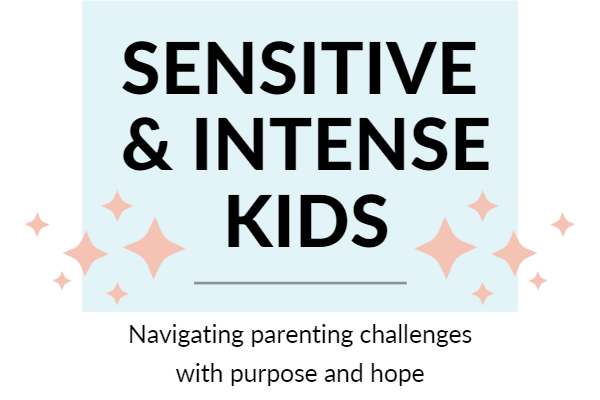I Resent My Child
5 ideas to get to the other side of resentment

Secretly, deep down…many parents harbor resentment toward their children. It’s quite common, and we’re here to help.
It can be hard to say it out loud… “I resent my child,” but keeping it bottled up can intensify the feeling. Or maybe you feel disappointed that your child is… well, not what you hoped for.
If you identify with these feelings, you are not alone. Your honesty is a great step toward healing, and you can learn how not to get stuck there. You’re likely facing an issue in your parenting foundation and I’d like to help you work through it.
What are signs that you resent your child?
Is it Resentment? Maybe you miss the life you had before this child. Or, maybe you resent that your child isn’t the reasonably compliant child that your other children are or that you see in many other families. While parents of children with obvious disabilities usually receive sympathy and support, an intense or behaviorally challenging child is likely to elicit criticism from others. This only adds more guilt and stress. You might resent the public embarrassment your child brings you.
When this happens, you’ll probably feel frustrated that your child just seems stuck in challenging behavior. Why are they like this? Why won’t they change?
Is it Disappointment? You might experience persistent disappointment with your child. Maybe the things that are important to you are very much not important to your child. They haven’t lived up to your dreams of being a good student, athlete, or social butterfly.
Resentment for how your child is, and disappointment for how they are not, can cause you to not even want to be around your child and make it hard to express unconditional love and affection.
Maybe you have even tried to make “connection” a part of a strategy to change your child.
Unfortunately, this doesn’t really communicate unconditional love. Kids will sniff it out. It will likely feel like manipulation to them.
The “why” of how resentment starts varies, but it’s ultimately a heart issue: Your expectations aren’t met and are probably not meetable. The change needed begins not with your child but with you. This change, while hard, is the best gift you can give to both you and your child. It’s the path to freedom and true connection because its source is God’s grace.
I resented my son’s “only child” behavior
We ran into this dynamic in our family when our second child was born.
Daniel, our eldest, didn’t seem to like this invasion of his secure place at the center of our lives. He became aggressive, defiant, and irritable. Up to this point, he had been the child of our dreams – easy, affectionate, outgoing, and even funny and clever for a 2-year-old.
But now… we were losing our connection with him. It was quite upsetting.
I decided to take him on a special father-son outing to the mall. My plan was to reestablish some of his sense of security that came from being an only child for almost three years. I hoped this might help him to be less edgy at home.
From the moment we arrived at the mall, Daniel had an insatiable desire to get exactly what he wanted and stay as long as he wanted.
He finally found a favorite toy. Out of frustration, I let him play with it while I shopped nearby. When it was time to go, he stubbornly resisted my attempts to get him out of there.
“I’m NOT leaving!” he yelled.
It seemed every eye in the place was riveted on us.
Infuriated, I grabbed him, flung him over my shoulder, and headed for the nearest exit.
His frantic screams echoed through the mall. My anger boiled.
I decided not to take Daniel to the mall again for a long time. We arrived home angry, defeated, and in worse shape than before we left.
My attempts to “connect” were manipulation
Looking back, I can admit that what may have looked on the outside like an attempt to connect with my son was actually an attempt to manipulate Daniel’s behavior. I was disappointed in his behavior and wanted him to change to make me feel better.
When it was clear that my tactic was not working, I grew angry and resentful toward my child.
Back then, I wasn’t able to accept Daniel and the challenging stage he was in. My own disappointment and resentment got in the way.
5 ideas to help you work through resentment toward your child
1. Grieve your disappointment.
As you identify the ways in which you are disappointed and resentful of your child, you can enter into “holy grief” – a spiritual process of lament, where you grieve your disappointment that your child is not the child you’d hoped for and that parenting is so much more difficult than you expected.
“A lament is a prayer expressing sorrow, pain, or confusion. Lament should be the chief way Christians process grief in God’s presence… Lament is a direct expression of trust in God. But the more we trust God with our sadness, the more likely we are to trust Him with everything.”
Whatever grief looks like for you – writing those thoughts in a journal, sharing with a friend, or talking with a counselor, spend some time on this step.
There are so many Psalms that start with angry or despairing words, even accusing God of being unfair! These Psalms almost always move through that anger or despair to a place of surrender and praise. Lament is the vital process that can bring you to a place of leaning into God’s sweet grace and yielding to his purposes.
2. Step into Gratitude.
Once you have lamented your grief, disappointment, and resentment, your soul is freed to look for the things you are grateful for. Have you experienced a depth of God you wouldn’t have known if your child was the “child of your dreams?” Have you seen a strength you didn’t know you had? Are there moments where you see the glimmers of who God is creating your child to be? Are there moments of really precious connection with your child? Let your mind feast on these gifts, and thank God for them.
3. Loosen your Grip.
Take a moment to reflect: “In what ways do I struggle to accept and enjoy my children just as they are? How have I been trying to change them? How does this affect my ability to connect with them in ways that express unconditional love?”
Consider if you have any underlying false beliefs that are causing you to inadvertently send negative or controlling messages to your kids.
For example, Lynne’s false beliefs included:
- “Life should not be chaotic. Or, at least, I shouldn’t get stuck with the chaos by myself.”
- “My children shouldn’t be asking for more than I can give.”
- “It’s my job to keep my children happy, or at least stop them from whining and demanding.”
Only as we do the work to deal with our own thoughts and beliefs can we let go of our need to control our child’s behavior and more freely communicate that they are loved no matter what. This security of being loved also helps our children begin to navigate their emotions.
4. Ground yourself in truth…
…the truth about your child, the truth about yourself as a parent, and the truth about who God is.
Once you identify false beliefs, you can work at replacing them with truth:
- “Chaos happens. I don’t have to make it stop or try to keep everyone happy.
- “It’s OK, and even good sometimes, for children to wait for help.”
- “Jesus’ presence can bring peace in chaos and mercy when I struggle.”
To read more about Lynne’s story with this process, see this article.
5. Walk in Grace for yourself!
This is a long journey with so many ups and downs. Expect that you will still struggle with disappointment and resentment at times, but God’s grace is so much more than enough to continue growing a rich connection with your child over time! Your self-compassion for your own failure is the fertile soil for compassion and connection with the “child of your reality!”
Philippians 1:6 gives this promise: “being confident of this, that he who began a good work in you will carry it on to completion until the day of Christ Jesus.”
Feeling stuck? Consider downloading and printing this free PDF. It has 100 Truth Phrases you can refer to during the messes of daily life, or consider contacting us about parent coaching.
Take the course that was made for your family.
Got a child with extra big emotions? We get it. And we want to support and equip you. Raising an intense and sensitive child isn’t easy, but it can be filled with hope.





